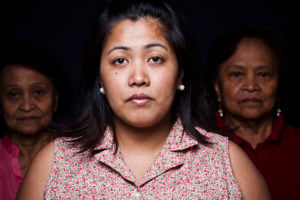Originally published on Ravishly and republished here with permission.
At the end of my thirties, as far as friendships go, I’ve certainly made my rounds.
On one end, I’ve had the same best friend since I was thirteen. I’ve also had forever friends who ended up being seasonal friends. Plus, I know women who can’t let themselves be loved because of friendships turned foul. Or from feeling somehow irrational for how they define friendships.
All of it – my experiences and the ones I had vicariously – point me to one reality: Some of us don’t quite know how grown-ass woman friendships work.
Biologically speaking, we grew up, but we took our immature, unresolved, issues-having selves with us. And of course, that baggage affects how we manage or mismanage our friendships today.
To be practical, there is no one set of rules for the dynamic nature of human personalities and needs. Plus, people change! #plottwist
That said, this isn’t a list of what to do or not to do. Instead, it’s a list of priority considerations that can apply to most personality types and basic human needs.
We’re talking broad strokes here, so insert the unique needs of your sister-friend, and adjust my recommendation accordingly.
1. Lifestyle: How She Gets Down/What She Chooses
On Judgment: Our friends shouldn’t need to have the same lifestyle as us for us to remain friends.
Let’s say she’s single and solvent, and I’m married and trying to make ends meet. A good friendship can survive that, if both of us work at it. In this example, I can start by not judging her for wanting to eat out five nights a week just because I feel like she could save money cooking at home or whatever.
I’m not saying I shouldn’t have shit to say about her choices. But I am saying that I should consider whether it really matters, whether it’s a matter of potential harm or merely my own preference.
If it’s the latter, then I get to make that choice for my life, but not for hers.
On Confidentiality: Grown women keep our friends’ secrets secret.
I may have my own confidants that I share my secrets with, but I can still be really considerate about whether to give someone else access to part of another friend’s personal life without their permission. And if she has done that to me, I can’t call myself grown if I don’t woman up and talk to her about it first.
On Compassion: Our experiences in our bodies certainly change as we age.
As adults, some of us might make different food choices after health scares or other issues. If she’s my friend, I honor where she is in her journey, especially for shit that isn’t about me at all, like food choices.
This means if I’m vegan and loving it, and she’s about that bacon life, I shouldn’t lecture. And if she doesn’t ask for my input, grown-ass 101 says that I back up and eat my quinoa, and stay out of her aisle and her choices.
2. Logistics: Managing Daily Responsibilities and Tasks
I stole this one from an episode of Being Mary Jane (Gabrielle and Lisa ‘nem did their thing, right!) because this is some grown-ass woman friendship, Exhibit A type shit.
Write this down: Grown-ass women don’t just need someone to laugh with. We need help with practical, everyday life management shit, too.
If her child has a thing at school that requires baking to be done, and she tells me about it, I assess whether I can etch out time to bake some brownies and tell her to come pick them up since baking is my thing.
Or I might stop by my favorite bakery to pick some up for her. My goal is to save her some angst and step in if I can.
And if I’m not able to call on her for something like that, my grown ass will make time to think about the things I can count on her for. The random Amazon deliveries of mermaid-tail blankets and books by authors I love.
The “I’ll watch the kids while you go meet that potential client” messages. Doing this helps me to gauge which one weighs more in terms of what my needs are in a friendship.
If I feel like I’m giving, not getting, I talk to her about it, instead of acting on the feeling. Why? Because avoidance is not an effective grown-ass woman friendship tool.
3. Love Languages: How She Shows Love to Herself and Others
One thing that has sustained the friendship between my longtime best friend and me is that we’ve realized that we won’t always get each other.
We won’t always understand a choice the other makes, or keeps on making. Even if I feel like I can help her to make a different choice, I have to tap into the truth that grown-ass woman choices don’t require other grown-ass women (or anyone, for that matter) to validate or understand them.
And the same respect goes for both of us. If I’m making choices that harm her, or myself, and we’re out of alignment, she can decide to create necessary distance between us. Or maybe to walk away completely.
Or in our case, to invite more acceptance of each other’s right to choose what makes sense for her.
Ultimately, all of us are works in progress. If you read this and feel like you haven’t always been a good friend, you can always do something differently today.
If we can work at being there for ourselves as well as our friends, we can create supportive, nurturing spaces where we women can feel valued for being exactly who we are.
To read more from Ravishly, check out:
- 3 Reasons I Refuse to Hide My Feelings from My Daughters
- 5 Ways I Practice Intersectional Feminist Parenting
- Ask Erin: I’m Still Insecure After 4 Years of Marriage; Is There Something Wrong Here?
[do_widget id=’text-101′]
Akilah S. Richards is a Jamaican mermaid who spends her land time as an independent author, intersectional feminist writer, unschooling mama, and self-expression speaker. She writes regularly at Everyday Feminism and has penned pieces for The Mid, For Harriet, Tiny Buddha, and My Brown Baby, among others. Akilah is also the founder of the only summer weekend camp for grown-ass women. Follow her on Instagram and Twitter.
Search our 3000+ articles!
Read our articles about:
Our online racial justice training
Used by hundreds of universities, non-profits, and businesses.
Click to learn more





















